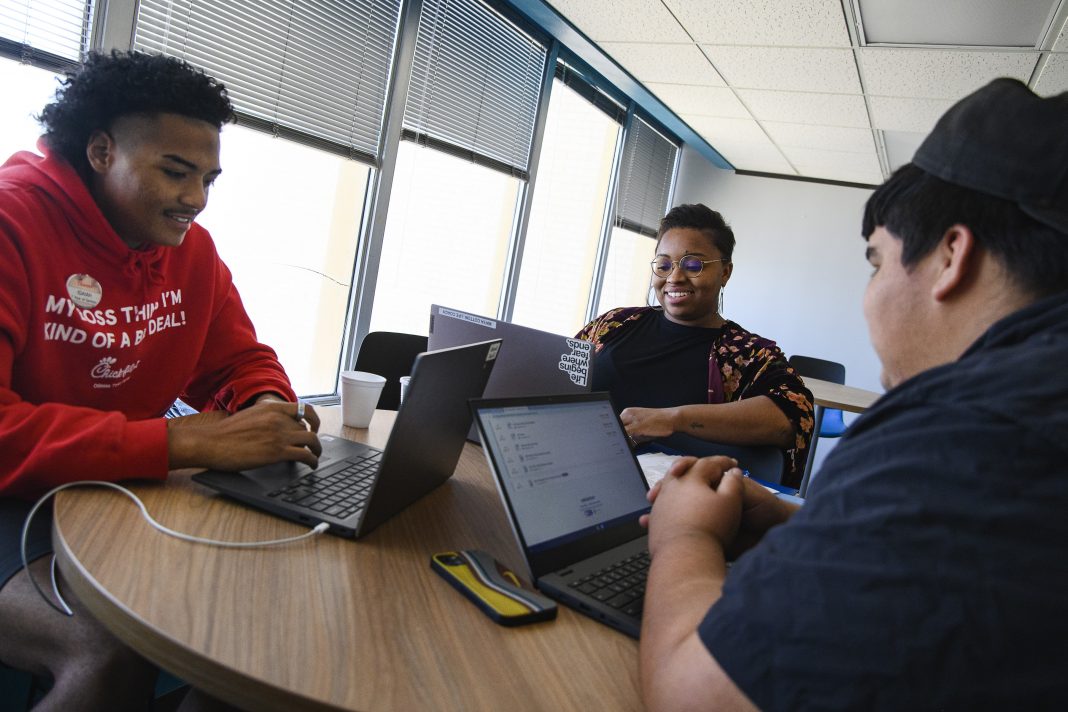With a goal of re-engaging students in their education, Acceleration Academies has set up shop in the Prosperity Bank building downtown.
Virginia Hunt, who was AVID district coordinator for Ector County ISD, is now district director for Acceleration Academies.
She has worked for many years to try and get students to college.
“Acceleration Academies is a program in partnership with ECISD that works to reengage the students that have disengaged from school and to potentially prevent some of our students that are more at risk to drop out … from disengaging, or catch them before they they do drop out. We get the students that need to finish a high school diploma,” Hunt said.
And that’s what the students are doing there. Students take one class at a time and it looks different from a traditional school.
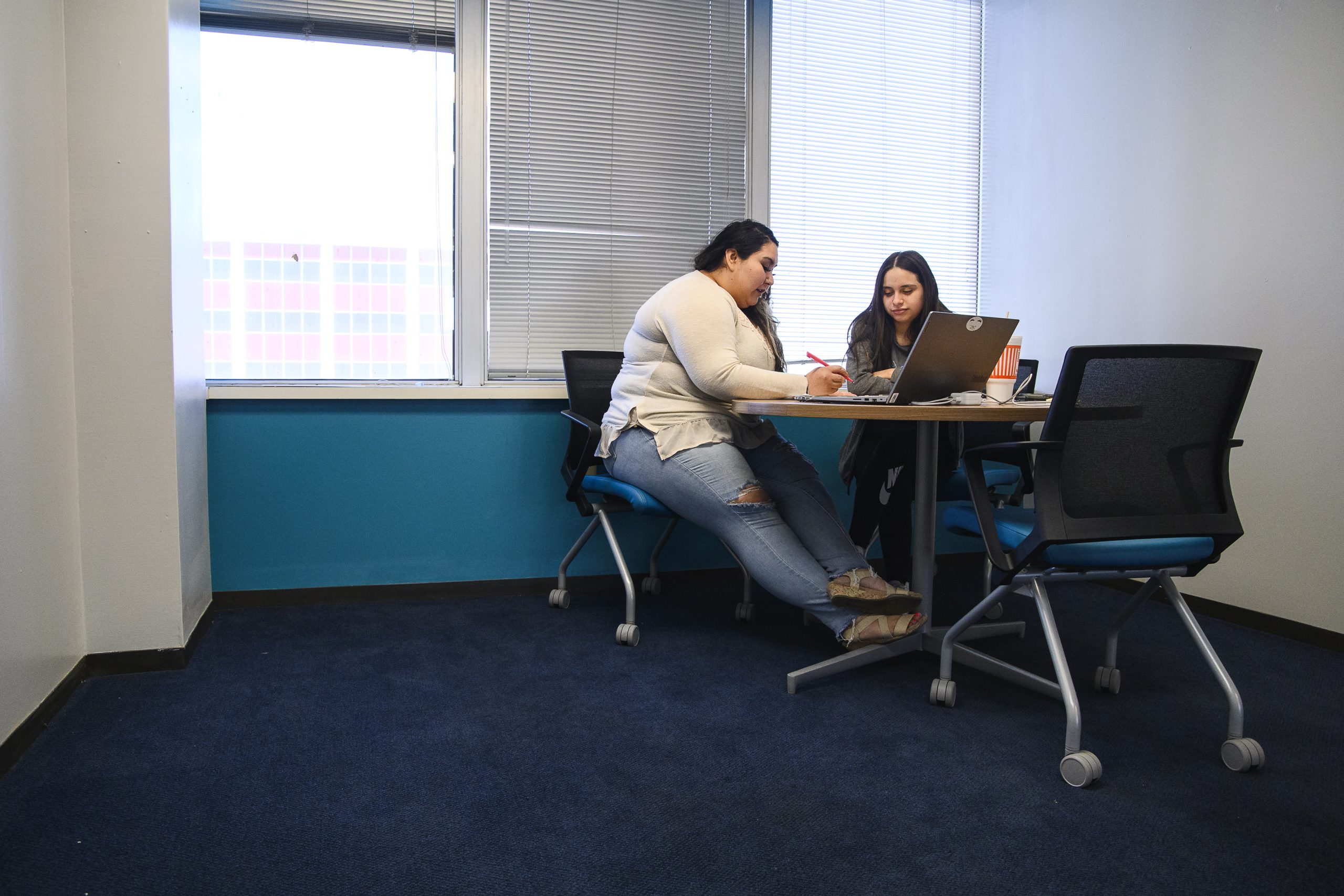
The Academies are on the sixth floor of the Prosperity Bank building so students have views of Odessa from large glass windows. There are places to study in an open area and more private spaces, including the testing area, where remote and face to face teachers can provide small group instruction.
Hunt said the Academies work with a similar population to ECISD’s Community Outreach Center, which focuses on students considered homeless under federal law.
Acceleration Academies has up to 175 students locally in grades nine through 12 and ages 15 to 20, Hunt said. They have anywhere from 70 to 90 students on site.
She has 10 full- and part-time staff members. Some are face to face and some are remote.
“… We host orientations and it’s been pretty steady, anywhere from five to 10 students at each orientation,” Hunt said.
“We do observe national holidays and because the students have access to the curriculum 24 hours a day, even though our doors may be closed, they can still continue their learning,” Hunt added.
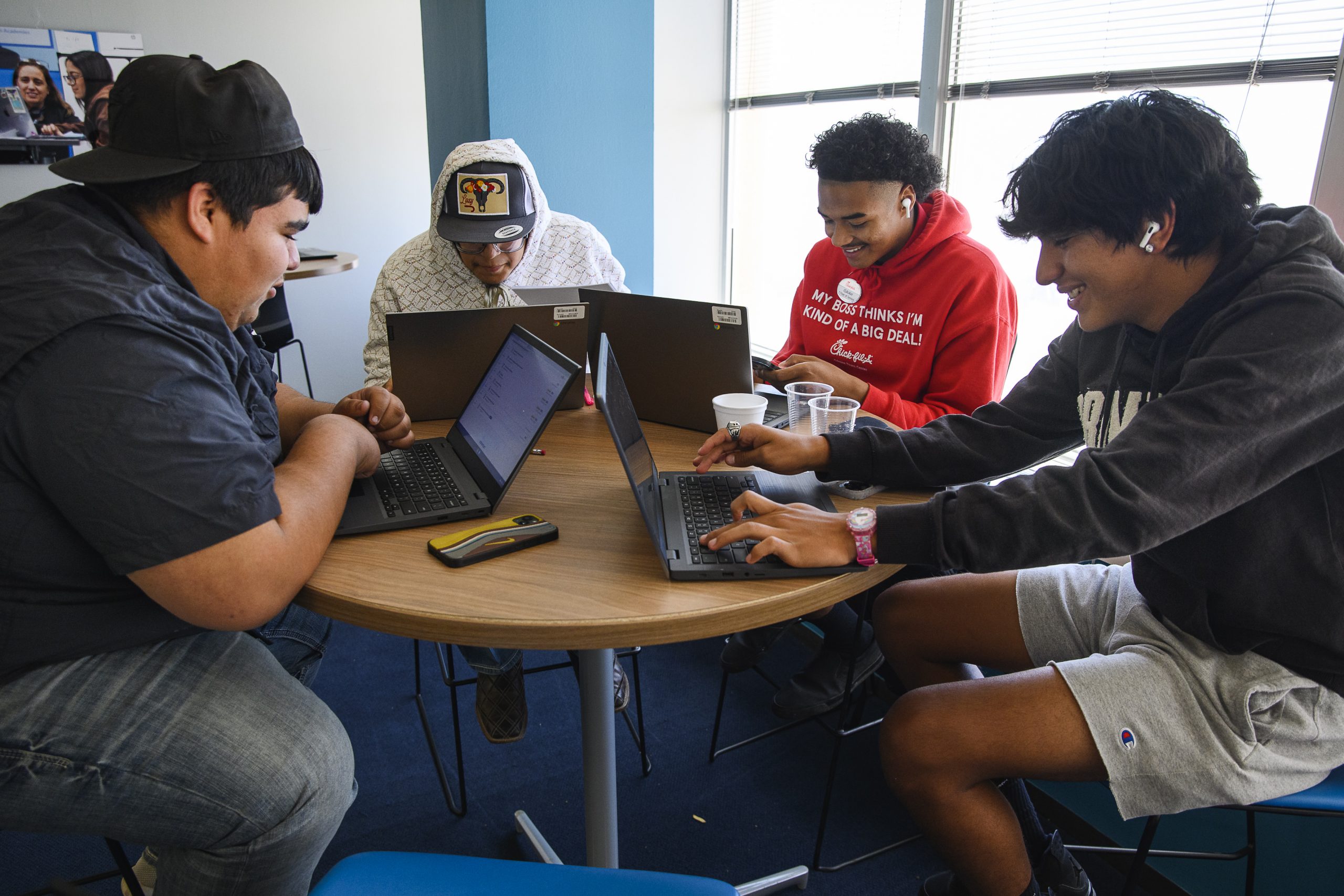
Hunt noted that the response from students has been mixed.
“… We have a group of students who want to have five or six classes to work on because they want to go really really fast. But we do one at a time, so they can focus on and really master the course. … They are still going to be expected to take the EOC (End-of-Course) exams and pass them. We want to make sure that the fidelity to the curriculum is strong, so we want to make sure that the students are taking their time in their classes (and) getting the mastery of content prior to taking those EOC exams, because it’s part of the requirement for Texas diplomas,” she said.
Some students come in with bad work habits and want to submit incomplete assignments to get a zero.
“… We don’t allow that. Even if they’re passing the course, they have to show mastery of content. That is a a different way of thinking about the curriculum. That’s a different way of thinking about school. Some of the students consider it a little bit more difficult, so it’s important for them to be strong, independent learners. It’s important for them to ask for help. We do a lot of choice and making the correct choices type of conversations … with them because we want to empower them to be able to take control,” Hunt said.
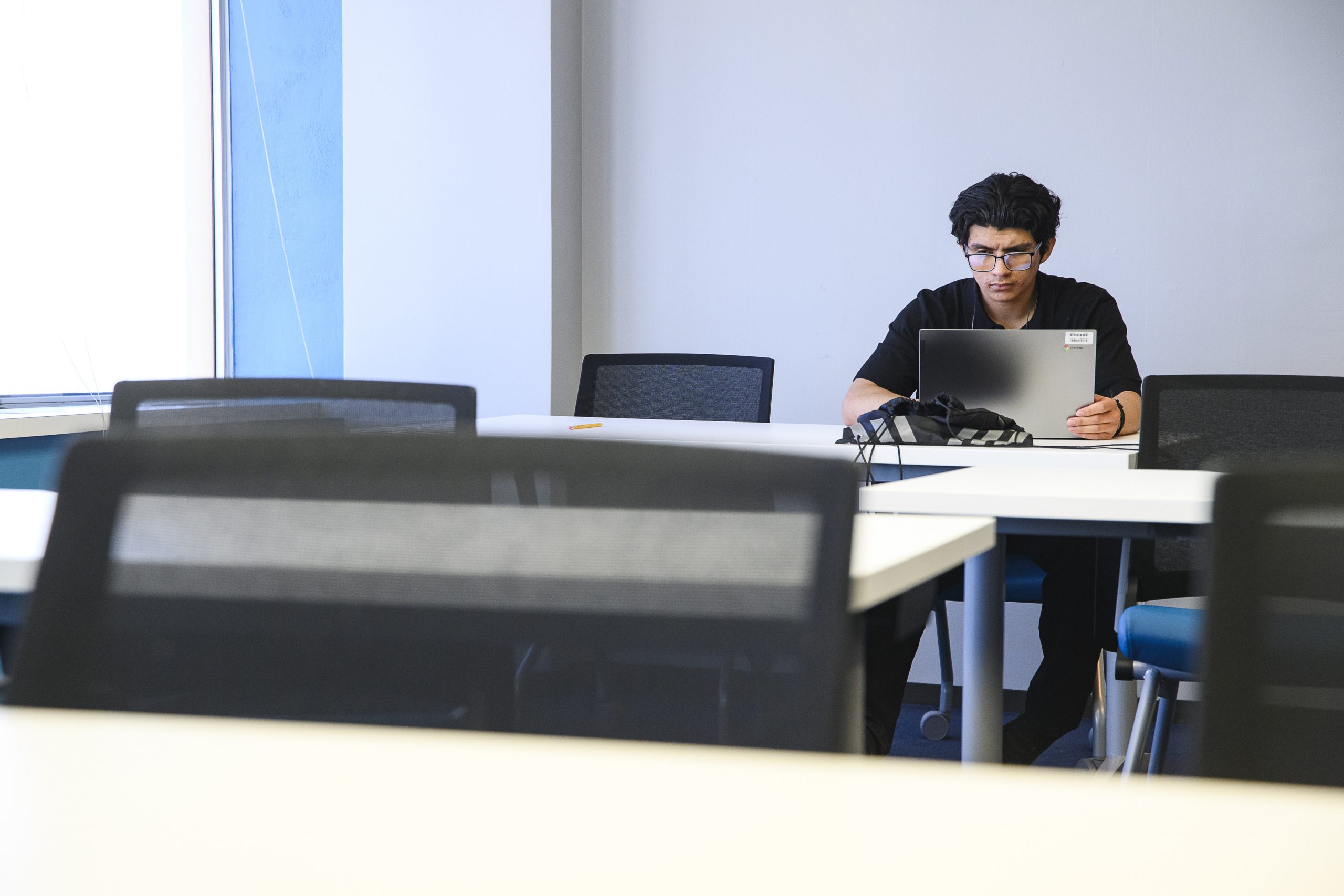
Their motto is “Own Your Success,” meant to help students realize that they are responsible for how they did because of the work they did.
Students at the Academies are used to getting zeros on their work and saying their teacher doesn’t like them.
“… That idea of owning your success, you do have to go keep going back to it with some students, especially the younger students, who like I said, had maybe learned some not so good work habits before …,” Hunt said.
Another way it is different is Maya Cotton, a life coach.
“She works on social-emotional learning and she’s done goal setting with the students …,” Hunt said.
They also work with Teen Parent Related Services and The Life Center.
“One of the biggest things that I see is the older students, students that may be out of cohort, meaning they didn’t graduate in 2021 when they should have, they are very grateful to be able to come back and have this opportunity again. …,” Hunt said.
She is working with a couple of students from 2020, which was the class that went through the initial COVID wave.
There is a graduation planned for July with a potential of 35 students.
“… We also have advocates that work with the students on a one-to-one basis,” Hunt said.
Advocates work on a caseload basis, kind of like a case manager. They work with the students that are coming to the academies to make sure they are progressing in their courses. They also work with students who are not coming to the academy to find out what’s keeping them out.
They partner with the life coach and other community resources to help eliminate those barriers, whether it be transportation or work schedule, for example.
Through their partnership with ECISD, breakfast and lunch are provided.
“… We work around those barriers, so that they can come and finish their school,” Hunt said.
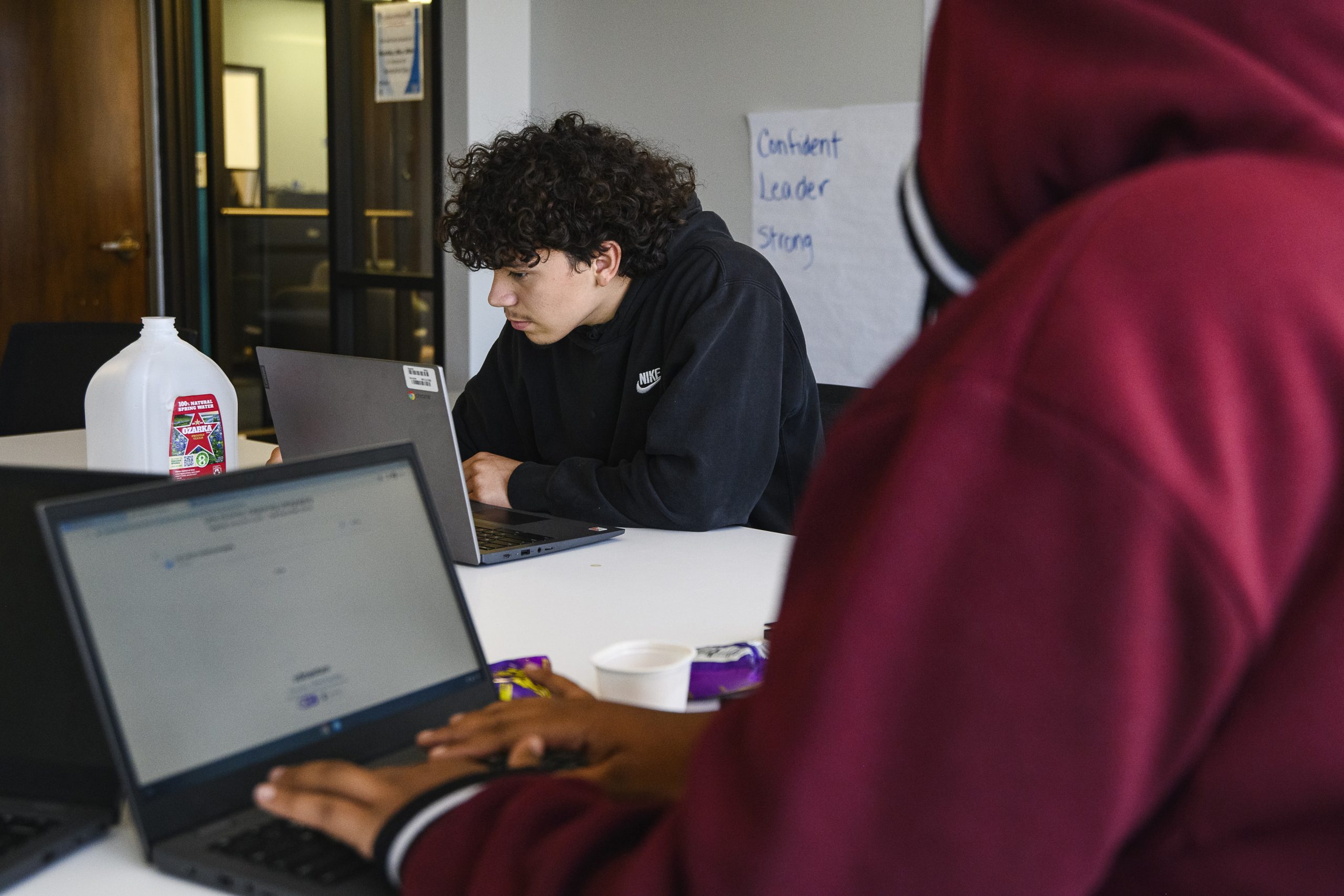
As they get older, students get a stronger sense of urgency, she added. At each student orientation, they review where the student is and how long it will take them to finish if they keep their current pace. When they’re not keeping that pace, they sit down with the student again.
Ruth Leos-Salinas, the registrar, said students tell her that they felt like regular school wasn’t a good fit for them. They thought the smaller class size at Acceleration Academies would be better. They also may have jobs or children.
Hunt added that the students are “not invisible” at Acceleration Academies.
Cotton, the life coach, conducts social-emotional learning groups and meets with students regularly to see if they need any mental health support. She provides them with resources and monitors their progress.
“As I see them fall off in different areas, that’s a key for me to come in and talk about different support that might be needed for that student,” Cotton said.
Naomi Pando, 15, was at Odessa High School previously and found out about Acceleration Academies from her mother.
At the end of May, she had been attending for a little over a month. She likes the fact that there are fewer students, more individual attention and flexible hours.
Pando also works at Better Burger.
“I think it’s a good school and I like it better than the public school,” Pando said.
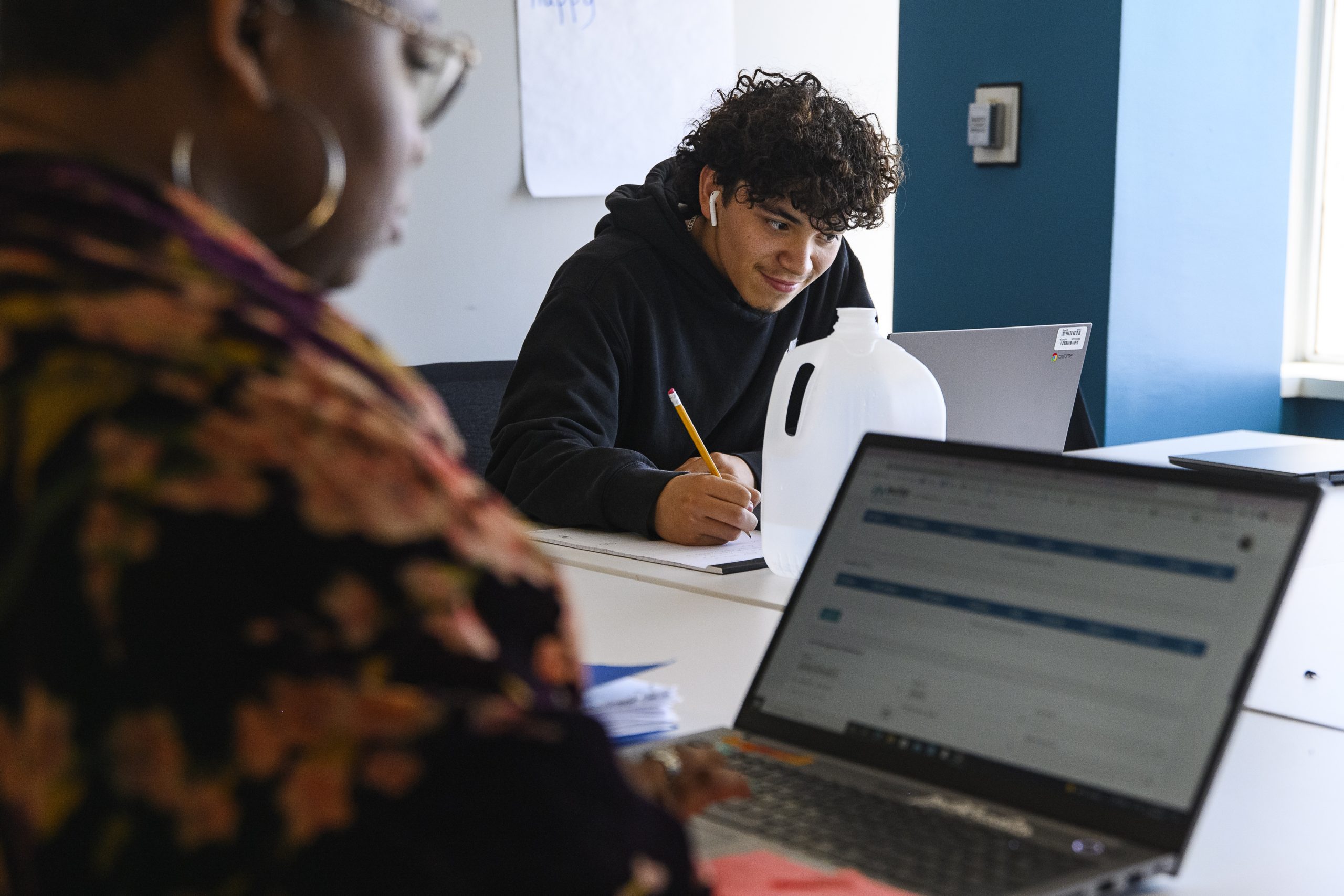
Josiah Alvarado, 15, attended Permian High School. He likes working on his own. One of his principals recommended Acceleration Academies to him.
“It’s a good school. It’s easier for me to work around,” Alvarado said.
He has been attending for almost a month.
Amelia Enriquez, 18, followed her brother, Santiago, to Acceleration Academies. She had been working on her GED at Catholic Charities, and before that she was at Premier High School.
“It’s good. It’s way easier. I will graduate way faster …,” she said.
She added that she hopes to become a nurse.
Santiago Enriquez, 19, was also working on his GED at Catholic Charities and had been through Community Outreach Center.
“When I started here, I liked it even more because the tutors helped me with my schoolwork and they’ve helped me understand the online, so I really do think this is a good school, too,” Santiago Enriquez said.
Both said they feel motivated to work at home, as well.
He works at Lowe’s grocery store.

